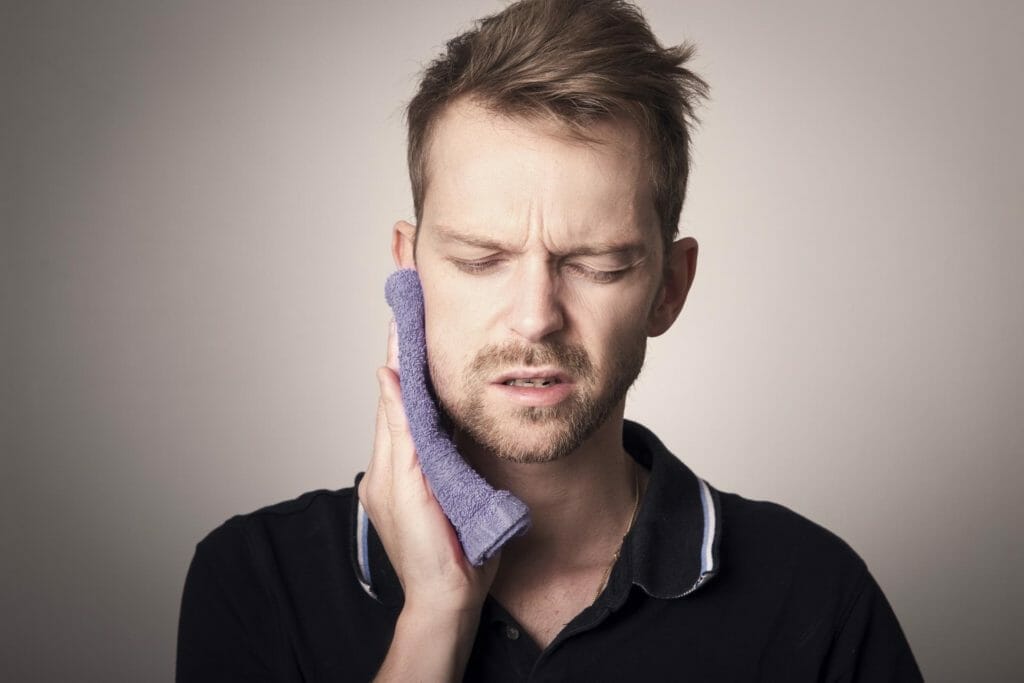Temporomandibular Joint dysfunction (a small joint disorder with a big name!) also known as TMJ is a common condition affecting the jaw joints and surrounding muscles and ligaments. It can be caused by trauma, an improper bite, arthritis or wear and tear. Common symptoms include jaw tenderness, headaches, earaches, and facial pain.
Morgan at the Art of Healing gives us his views and advice on treating TMJ in the clinic.

“The textbook answer to this would be arthritis or an aching feeling in the joint, however, I don’t see as much of this. The most common symptoms I see with patients that come into the clients is teeth grinding – The jaw is working overtime that is causing pain around the jaw and clicking or grinding noise when moving your jaw.
Other symptoms include difficulty in or discomfort felt while chewing, facial pain, and locking of the jaw joint (or jaw joints) that makes it difficult for you to open or close your mouth. A lot of people who consistently have headaches or neck pain – that's another common symptom where the underlying cause can often be TMJ”
“At the Art of Healing, we have many success stories with patients who have been relieved from TMJ with nonsurgical treatments that we offer in the clinic - Physical therapy is one treatment that we offer that includes exercises to stretch and strengthen jaw muscles.
I personally find that a lot of TMJ patients have great relief from me doing some nice work to loosen through the deep muscles of the neck and back of the head – these are often super tight and pull on the joint. I also find using medical acupuncture very effective – it sounds painful but is actually quite gentle and delivers amazing results!”
It does vary – if you go by the book, research tends to say it is most common over the age of 50 however, from my experience, I don’t agree. It can affect people of all ages and can be caused by lifestyles - people who for example do a lot of speaking like lecturers etc.
But actually I find its really common in day to day office workers! That combination of a hunched over a laptop posture, combined with stress – can really cause patients to develop TMJ symptoms – a lot of us subconsciously overclench our jaws through the day as a result without realising it!
Firstly, come into the clinic and we will investigate and rule out any other conditions that might be causing jaw pain. TMJ disorders are usually a musculoskeletal, temporary condition and can defintely be relieved with the treatments that we offer in the clinic.
We also help our patients with guidance and long term advice – including exercises to stop it from happening again. Really we want to help patients avoid interventions such as botox injections, or surgery which are really the very last resort.
“I'd been suffering for years with just really bad neck pain and headaches – which I thought was normal from sitting at a desk all day. It was only when I saw a dentist and he told me I grind my teeth at night – and said it could be my jaw that I became really concerned! The dentist had given me a mouthguard but it was so uncomfortable – so that's why I went on the internet to see someone who could help.Morgan has been wonderful. He really took the time to understand my concerns and the treatment is just great! I've not had any headaches and he's given me some great exercises to retrain my jaw – it feels so much better! Sometimes when I've had a super busy few weeks at work or get really stressed I can feel it starting to tighten again – so I come in to see Morgan and after one session I'm good to go! Thank you!”
If you feel like you may be suffering from TMJ dysfunction, jaw pain, neck pain or chronic headaches, we may be able to help! Call us today on 0203 146 6755 to chat to one of our team, or book online at www.theartofhealing.uk!